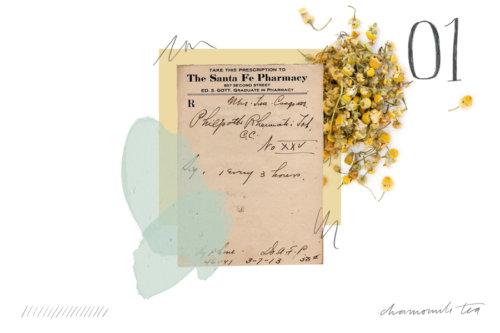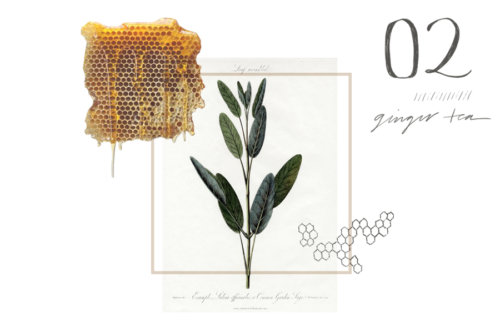
5 Easy Herbal Remedies for Cold and Flu Symptoms
With cold and flu season in full swing, we feel its more important than ever that people are aware of the best herbal remedies for cold and flu season. Below, we’ve included our rundown of safe, time-tested herbal remedies for people of any age (including kids and those taking prescription medication).
If you’re looking for a general parenting resource, we recommend [easyazon_link identifier=”1583331395″ locale=”US” tag=”gardcoll03-20″]Smart Medicine for a Healthier Child[/easyazon_link], which was written collaboratively by a naturopathic physician, a medical doctor, and a pediatric nurse, who collectively offer remedies from different medicinal perspectives: conventional Western medicine, acupressure, homeopathy, flower remedies, nutritional supplements, dietary advice… just about everything you might need, no matter what balance of medicines you espouse.
To Soothe A Sore Throat
Warming liquids (teas, soups, bone broths) are always a safe bet when dealing with a sore throat. Our go-to is ginger tea (basically for everything that ails us), which has a long history of being used to combat cold symptoms.
There are plenty of ready-made options out there, but making it for yourself is simple enough (and more potent we think): just grate a half to a full tablespoon of fresh ginger into a mug, fill with freshly boiled water, and let steep for five minutes.
For kids, we advise adding a drizzle of manuka honey just before serving– not just for sweetness, but for manuka honey’s antibacterial and immune boosting properties. (Of course, regular honey will do in a pinch.)
For something a little stronger, licorice tea is safe for children in small amounts; try watering down some licorice tea to soothe the throat and help loosen congestion in the lungs.
If you start feeling water logged but still have that pesky itch in your throat, try gargling with warm liquids: either warm water with sea salt and the faintest touch of cayenne (start with a little– you can always add more later) or warm water steeped with sage.
To Ease Congestion
Colds are the time when you really realize how much you take breathing for granted. The licorice tea mentioned above is an easy drinkable way to open up the chest, but if you’re concerned about the licorice dosage, you can opt for mullein leaf.
For a less invasive approach, try an aromatherapy rub (mix 3 Tbsp coconut oil with a few drops of essential oil) or draw an aromatherapy bath (just add a few drops of essential oil to hot water once the tub is filled).
For congestion, the best scents to use are eucalyptus, sage, rosemary, and peppermint. Take advantage of their time indoors and bedrest by placing eucalyptus and thyme in hot water on the radiator, which similarly aids in relieving breathing.
If sinus pressure is keeping you up, try filling a (clean!) sock loosely with uncooked rice and microwaving at thirty second intervals until it reaches a warm temperature. Lay the sock across the forehead or nose, or anywhere else they are feeling sinus pressure. It smells a little odd, but does the trick.
To Relieve A Cough
Beyond the above regarding dealing with sore throats, you can make a tea with leaves of thyme and/or sage to quiet a cough.
For something a little stronger, elderberry syrup does an excellent job of not only soothing scratchy throats but boosting the immune system. (You can even try making your own!)
To Fight The Common Cold
While there’s no cure-all to the cold, [easyazon_link identifier=”B00BBMY9Y4″ locale=”US” tag=”gardcoll03-20″]Yin Qiao[/easyazon_link] (sometimes stylized Yin Chiao), a Chinese blend of herbs, gets pretty close.
The medicine is a blend of many different healing herbs: honeysuckle, forsythia, balloon flowers, peppermint, fermented soy bean… and more; the advice is to take a dose when you first begin to feel sick, and to continue to take it until symptoms disappear.
Omegas with echinacea will also help boost immunity– having a strong immune system can not only shorten recovery, but help prevent colds in the first place.
Diet-wise, soups are always good choice; we recommend miso soup, which provides essential nutrients for recovery (like protein, vitamins B, E, and K, and folic acid) and also boosts gut health (which aids with overall health).
Always consult with your child’s doctor before administering any new medicine.




































